Posted on 4/20/2017
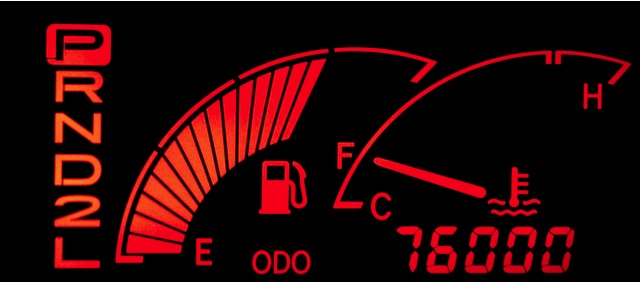
When it comes to saving money on your car, there are a lot of little tips and tricks some people don't know about. These things take very little effort or time, but they can end up saving you hundreds of dollars a year in car maintenance and gas costs. Here are six ways of saving money on your car that you might not have thought about before. Don't buy gas at the first station you see if you can avoid it. Shop around for gas. Sometimes one station will be consistently a little bit cheaper, and that savings can add up. Also, stations right off a major highway are often more expensive, so try to avoid them. You can also download apps for your smart phone that will help you find cheaper gas. You should also shop around for parts, tires, etc. It's estimated that the average driver will spend upwards of $3,300 a year on their vehicle! Even if your car is brand new or is in great shape, you'll still have to pay for routine maintenance such as ... read more
Posted on 4/20/2017

There are a lot of things people know about cars and their maintenance. Or do they? Just like anything, some of these "common knowledge" car care tips are actually myths! They can, in fact, end up costing you money instead of helping you save it. While it's important to maintain your car, it's even more important that you properly maintain it as outlined in your owner's manual. Unnecessary maintenance may not help extend the life of your car, and it may end up costing you a lot of money! Here are three myths about car maintenance that you may not realize are myths... Myth 1: You have to change your oil every 3,000 milesTruth: While this used to be a very good rule of thumb, engine technology has greatly improved over the years. Most cars can now go many more miles before needing an oil change. New synthetic oils can go 15,000 miles before they need to be changed! Why is the 3,000 mile "rule" still around? Obviously the more oil ... read more
Posted on 4/20/2017
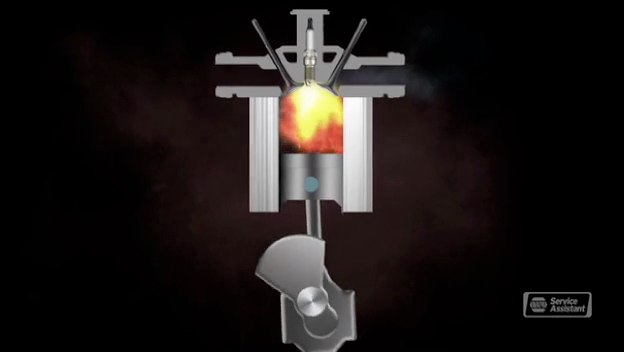
I want to address a very important maintenance item...timing belt replacement. It's important because letting this one slide can lead to very expensive engine damage. Your timing belt choreographs the timing of your combustion process. Your pistons travel up and down in the cylinder. Intake valves open at the right time to let in air and fuel. They close at the right time to allow the fuel to burn, and then the exhaust valves open at the right time to let out the exhaust. All of this happens thousands of times a minute, and it's your timing belt that makes sure the valves are opening and closing at precisely the right time. If the timing is off, your engine won't run, and that's the best case. The worst case is that a valve is opening at the wrong time and collides with the piston. The result is bent valves and maybe even more damage to the cylinder head. Those kind of repairs can run several thousand dollars! Now, timing belts just wear out nat ... read more
Posted on 4/20/2017
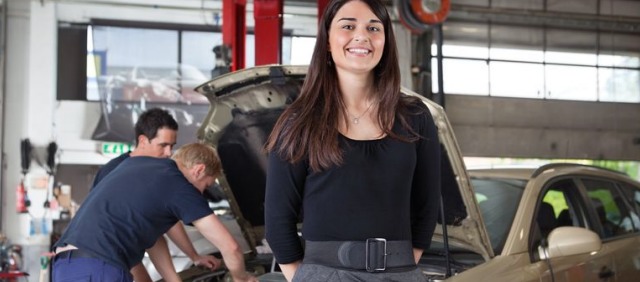
Preventative maintenance in a car can increase both your safety and the car's lifespan. If a car is neglected, odds are that repairs will be required more frequently and will cost much more than the maintenance otherwise would have. Listed below are several things you should check on at each interval. This is by no means all-inclusive, but merely a starting point. The best course of action is to take a look at the manufacturer's recommendations and follow them to a tee. They know the car and what it needs. Listening to them may save its life. Every Month Verify the check engine light is off. If the light is on, get it into the shop to catch whatever problem it is as early as possible. Check tire pressure and make sure it's within the models' guidelines. Visually check that all exterior lights are working and replace burned out bulbs. Every Three Months Change the oil. It's recommended to change the oil filter at the same time, and ... read more
Posted on 4/20/2017
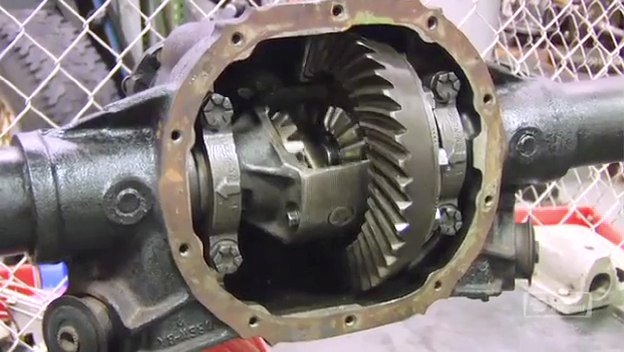
When you take a corner in your car, the outside wheels have a slightly longer distance to go than the inside wheels. That means the outside wheels have to turn a bit faster than the inside ones, and the piece of mechanical wizardry that makes this possible is called the differential. The differential allows the drive wheels to rotate at different speeds and turns without the wheel binding or hopping. If you have a rear-wheel drive vehicle, the differential is on the rear axle. You’ve seen that bulge in the middle of the axle when you're driving behind a truck. That's the differential. If you have a front-wheel drive vehicle, the differential function is handled by your transaxle. Of course, all-wheel drive vehicles have differentials on both axles. They also have a center differential or a transfer case between the front and rear axles, to compensate for speed differences between the front and the rear. Now, because all the power of the engine is transferred through the various dif ... read more
Posted on 4/20/2017
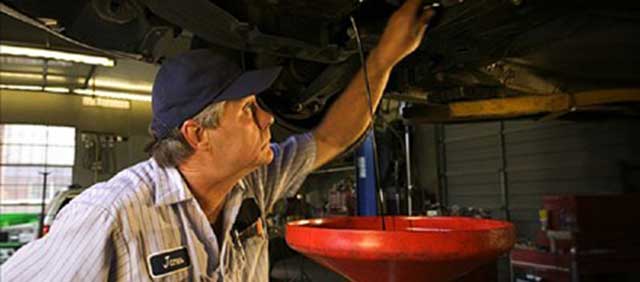
Car Maintenance is Important. It can Also Get Expensive. Even as cars evolve to need less-frequent care, maintenance and replacement costs can take a big bite out of your wallet. Don't worry, we're not going to try to teach you how to rebuild an engine or even dirty your hands - just how to make smart decisions that'll keep you rolling for less. Give Regular Fuel A Try Even if your car says premium fuel recommended - or even required - few really need it. Most late-model cars can adjust to regular fuel because engines are now equipped with knock sensors, which adjust the engine's timing automatically when they detect detonation - the tell-tale 'pinging' sound. You may experience a slight decrease in power and fuel economy, but no damage to the engine. A key exception: If your car is turbo- or supercharged and specifies super, follow the manual. And for Pete's sake, you're doing neither your car nor your wallet any favors by putting higher ... read more
Posted on 4/20/2017
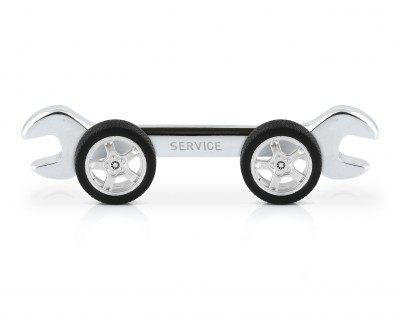
Whether you buy your vehicle new or used, there are specific services that will need to be performed on a regular basis. With the right auto repair shop in Tempe on your side you can make your vehicle last longer with these services, such as regular oil changes, wheel alignment and transmission services. Taking care of the regular maintenance will provide you with many benefits. Imagine you're stranded on the side of the road waiting for a tow truck. After your vehicle arrives at our Tempe auto repair shop, you discover you could have prevented the breakdown with a few simple services. Our mechanic informs you the breakdown occurred because you failed to get a tune up, or perhaps you forgot to get an oil change at the proper interval. It all could have been prevented with simple maintenance. Five Benefits You Gain from Preventative Vehicle Maintenance1. Your Vehicle Will Hold Its Value Better We all know once you drive a new car off the lo ... read more
Posted on 4/20/2017

Did you know you don't have to own a hybrid to be a green motorist? There are actually a number of different things you can do to help the environment, and you don't have to drive a special car to do it. Of course, driving a hybrid or a vehicle that gets great gas mileage does help, but here are a few other things you can do that will also contribute to saving the environment, and some of them may actually save you a bit of money too! Accelerate And Decelerate Slowly Taking off very quickly or slamming on the brakes uses a lot of gas. It's better to speed up or slow down gradually when you can. Another thing that helps save gas is to maintain the same speed. If you use cruise control when you're on the highway, you'll get a little better gas mileage and help the environment a bit. Do More In Fewer Trips Every time you start up the car, it uses a little bit of extra power. Try to do as many errands in one trip as you can. Even though ... read more
Posted on 4/20/2017

It seems like every cost involved with your car keeps increasing. Gas prices keep climbing, maintenance seems to cost more and more, and every time you have to replace something, it eats a hole in your pocketbook. There are some things you can do to help keep your car in good shape. Most of these things don't cost much in time or money, but you do have to remember to do them when they're needed. One very important thing to do is actually read the owner's manual that comes with your car. Some people assume that since they've been driving for years, the owner's manual has nothing new to tell them. However, this booklet outlines everything you need to know about proper maintenance for you vehicle. It tells you when to schedule your oil changes (it's NOT every 3,000 miles), how long your warranty covers different parts of your car, and more. Not only do you need to read this information, you also need to make sure you keep your owner's manual in the car so you ... read more
Posted on 2/16/2017

With the economy continuing to ebb and flow unpredictably, many Americans are making the decision to keep their older vehicles. While there are trade-offs involved, one of them doesn’t have to be fuel economy. Following the tips in this article will help you understand why fuel economy suffers, and what you can do to prevent it from happening to you. The Importance of Maintaining Your Older Vehicle You can prevent most expensive repair bills and keep your car performing its best by making an effort to schedule routine maintenance and inspections. When you’re diligent about maintenance, you’re not only saving money; you’re maintaining your investment, and we're always here to help at Elite Auto Repair. What Causes Gas Mileage to Decrease? A number of factors could be contributing to your car’s poor fuel economy. Simply put: Poor fuel economy means your car doesn't run as efficiently as it could be. Which means more money out of your pocket beca ... read more